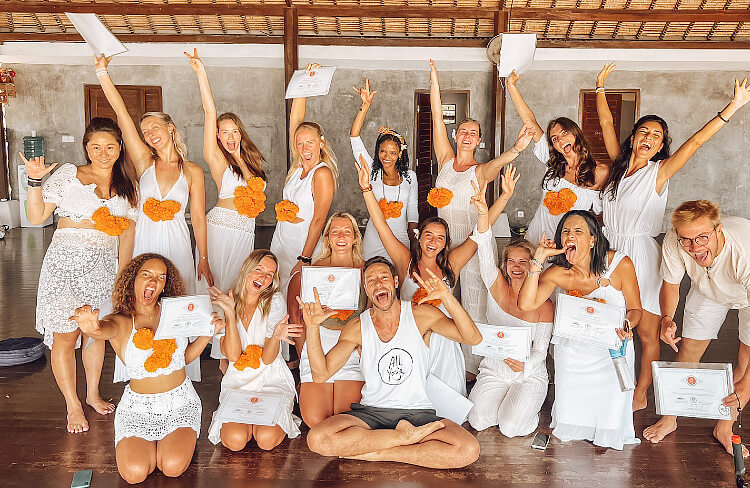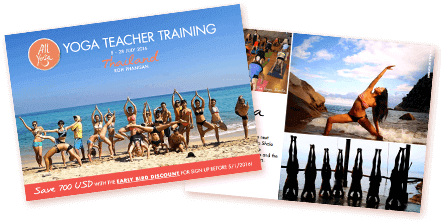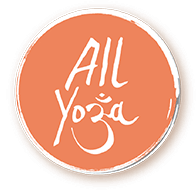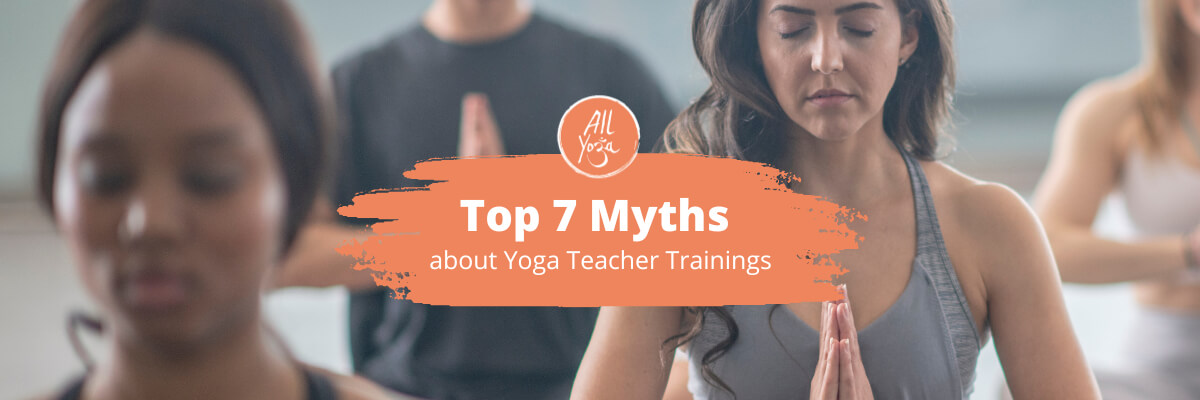7 Myths About Yoga Teacher Training
If yoga has brought positive changes in your life, you might be curious about its transformative powers and want to learn more about it than just physical postures. One of the best ways to deepen your yoga knowledge including philosophy, anatomy, alignment, breathing, and more is to attend a yoga teacher training. Nevertheless, there are so many misconceptions about yoga teacher training these days that it’s rather difficult to decide which course is good or even if taking one is the best move for you.
Here we will debunk the top 7 myths of yoga teacher training, revealing to you what it really is all about. Hopefully after reading this article, you’ll have a better sense of what yoga teacher training is and make a sound decision that will get you closer to your goals.
1) Yoga teacher trainings are only for those who want to teach yoga.
This is probably the greatest myth of all. As misleading as the title is, yoga teacher training is not exclusive for those who want to become a yoga teacher. During a yoga teacher training, you’ll receive teaching in guided practices, anatomy, philosophy, and teaching methodology. All of which will enhance your personal practice, deepen your understanding of yoga as a whole, and connect you to your inner self.
2) You have to be super flexible before joining a Yoga Training.
Often prospective students get intimidated to sign up for a yoga teacher training because they are not ‘perfect’ in their yoga practice. Here is the bottom line: You will never be graded on your physical agility during a yoga teacher training. Yoga is not about how bendy we are or how many arm balances we can do. Yoga is a life philosophy that helps us steady the mind and strengthen the body; it’s a path to health and longevity. Therefore, you can relax knowing that you don’t need to be super flexible or acrobatic in order to join a yoga teacher training.
You might be curious then in what you’ll be evaluated on during a teacher training. Most importantly, you will be graded on your ability to lead a safe beginner yoga class.
3) You must have done yoga for many years and have a rigorous practice.
This is a misconception that you need to do yoga for many years prior to joining a yoga teacher training. The truth is you can join a program as early as just a few months into starting yoga. This being said, people with prior sports or dance background have an easier transition into yoga as their physical bodies are already primed. As well, if you practice yoga frequently like five to six times per week for a few months, chances are you’re more ready to join a program than someone who practices yoga just once a week for a year.
So how do you really know if you’re ready to join a teacher training? Consider these three signs as your guide:
Firstly, you have developed a good sense of body awareness through yoga or other forms of movement training. Secondly, you have a decent understanding of one style of yoga, should it be Vinyasa, Yin or Ashtanga, and you would like to dive deeper into it. Lastly, you love learning and sharing particularly when it’s about cultivating peace for the body and mind.
4) You must be vegan or vegetarian.
This is a common myth that to join a yoga teacher training, you must become vegan or vegetarian. Although yoga teaches non-violence (Ahimsa), it is not true that you must become vegan when embarking on your yoga journey. What yoga truly embodies is awareness and balance. Despite many health claims that support veganism, you must understand what your body needs and the diet that supports you. True non-violence is to honor yourself and the environment around you. If that means consuming meat is part of that equation, then you can find ways to do it in a moderate way. Moderation is cultivating balance without going into the extremes; this goes for diets and everything else we do in life.

5) Yoga teacher trainings are too expensive.
Yoga teacher training is too expensive. This is a common objective when it comes down to paying for a yoga teacher training. A counter question would be compared to what? If we only look at the price value of a training, for many people it would seem like an astronomical amount. However, have you ever thought about the cost of NOT joining a program? For example, the life changing experience that you would be missing out on doing training in Thailand? Or the heavy toll of your health from not knowing how to handle stress in life? Perhaps the inability to effectively communicate with your loved ones due to blocked energy?
Here’s the thing, anything that is worthwhile in life requires effort and energy. One can look at a yoga teacher training tuition simply as money coming out of your bank account, consider it a scarcity mindset. On the other hand, one can see a yoga teacher training tuition as an investment not just about money, but an investment in your physical and mental health, personal development, and for many people- their happiness.
6) All Yoga teacher trainings teach the same things.
All Yoga Alliance registered schools follow the same guideline but they do not teach the same things. The guideline outlines four main categories: Techniques/training practices, anatomy & physiology, yoga humanities, and professional development. Each of these categories are further divided into more specific topics such as postural breakdown and history of yoga. Although following the same general guidelines, yoga teacher trainings do not not teach the same things based on the fact that they might have different yoga styles (Ashtanga vs Vinyasa), the trainer’s backgrounds and teaching styles, and different emphasis (yoga therapy would focus on trauma healing while Rocket Yoga would focus on sequences and inversions).
While some topics are the same, like yoga anatomy and history of yoga, different trainers or guest lecturers have wildly different ways in delivering the same content. Think back to your school days when you had a teacher who simply read from the textbook. Chances are you didn’t enjoy learning all that much. Similarly, in a high quality yoga teacher training, a skill yoga trainer will bring the most seemingly monotonous topics alive and exiting.
7) You will only learn about yoga and nothing else.
A common surprise that yoga trainees didn’t know prior to joining a yoga teacher training is that they will learn so much more than just yoga.

Now imagine spending a month with like-minded people learning, practicing and sharing in an intimate space. The friendship that you will cultivate during a yoga teacher training will last you a lifetime. These are the friends who will support you on your spiritual path, inspire you to continue to follow your heart even when life gets hard.
Lastly, when you embark on your yoga teacher training journey, you have the opportunity to step away from your old patterns. With new scenery and people, we step out of our comfort zone and open many doors of possibilities showing us that we are the creator of our reality. In an unfamiliar setting, we get to explore and experience anew.
Upon completing your yoga teacher training, you’ll discover what you walk away with is so much more than just yoga. You will have a deeper understanding of yourself, a group of lifelong friends, and new opportunities that come with a change of perspective.
Read More Blogs
Want to Become a Yoga Teacher and/or
Deepen your Yoga Practice?
2 FREE EBOOKS FOR YOU:
- 20 things to know before choosing a yoga teacher training
- 7 tips to deepen your yoga practice right now

Copyright © 2024, All Yoga International ltd. All Rights Reserved
Privacy Policy
